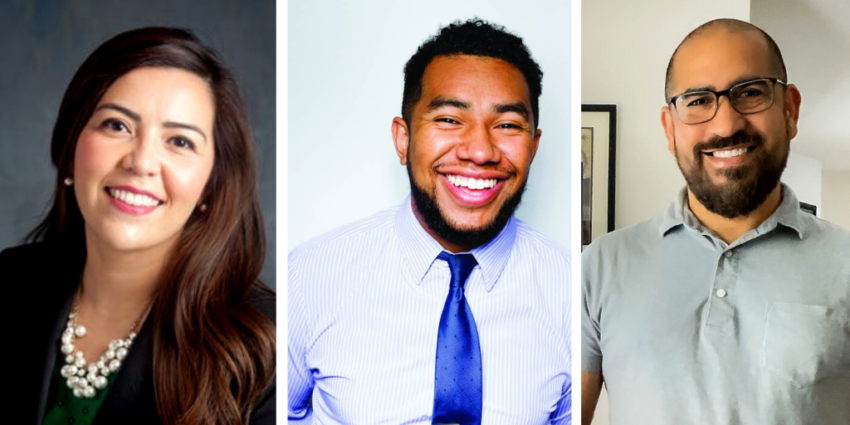
Share On Social!
In celebration of National Hispanic Heritage Month, Alliance for a Healthier Generation is sharing a series of stories about Latino health champions.
These champions—Bianca De León, Alejandro Diasgranados, Mario Reyna, and Pia Escudero—have different backgrounds and interests.
But they share a passion for creating health equity and a more just, equitable, inclusive, and healthy future for children and families.
Read their stories!
Bianca De León: Community-Building to Connect Kids to Positive Experiences
Bianca De León grew up speaking both English and Spanish with her single mother in their community along the U.S.-Mexico border. She had a loving network of cousins, aunts, uncles, grandparents, and great grandparents.
Now, as a mother, she continues to forge these strong loving connections with her own children.
She also forges these connections in her community.
De León is a community builder who is passionate about improving the health and lives of young people in the Paso del Norte region, which includes parts of Texas, New Mexico, and Mexico.
“I believe every kid deserves the opportunity to be connected to a positive experience,” De León said, according to Healthier Generation. “We know that when kids are connected to these experiences, they have better health outcomes.”
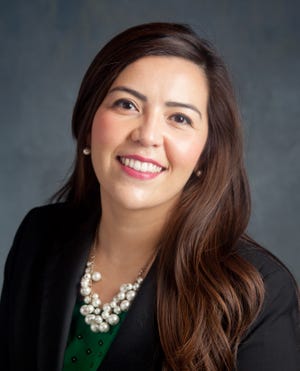
One of her strengths is ensuring kids are connected to positive experiences and trusted adults through afterschool and summer programs.
She has done some incredible work as former Program Officer at the Paso del Norte Health Foundation in El Paso, Texas (82.9% Latino). She led an afterschool initiative in West Texas and Southern New Mexico, and Ciudad Juarez, Mexico.
“If you think back on your childhood, chances are there was that one afterschool or summer program that was formative in your life,” De León wrote in a blog for the Paso del Norte Health Foundation.
De León knows that quality afterschool programs enable children to bond with trusted adults while providing a safe place to learn, play, and grow with their peers.
“[These programs] produce kids who are less likely to skip school, do drugs or get in trouble with the law and more likely to succeed academically and to exhibit positive social skills and healthy behaviors,” De León wrote.
Alejandro Diasgranados: Teacher of the Year
Growing up, Alejandro Diasgranados was inspired by a teacher who shared his Afro-Latino identity.
Now, as an elementary school teacher himself in one of Washington D.C.’s most vulnerable and overlooked schools, Diasgranados seeks to provide representation and support to remove barriers to his students’ success.
This includes partnering with a local nonprofit to integrate healthy cooking lessons into the curriculum, as well as staying in constant communication with his students when they switched to virtual learning during COVID-19.
Diasgranados knows how important healthy food is for students’ health and success. He learned from his abuela who would take the bus to another town to get healthy food and ensure his plate was filled with colorful fruits and vegetables.
However, beyond living in a food desert, he faced many other barriers as a teacher.
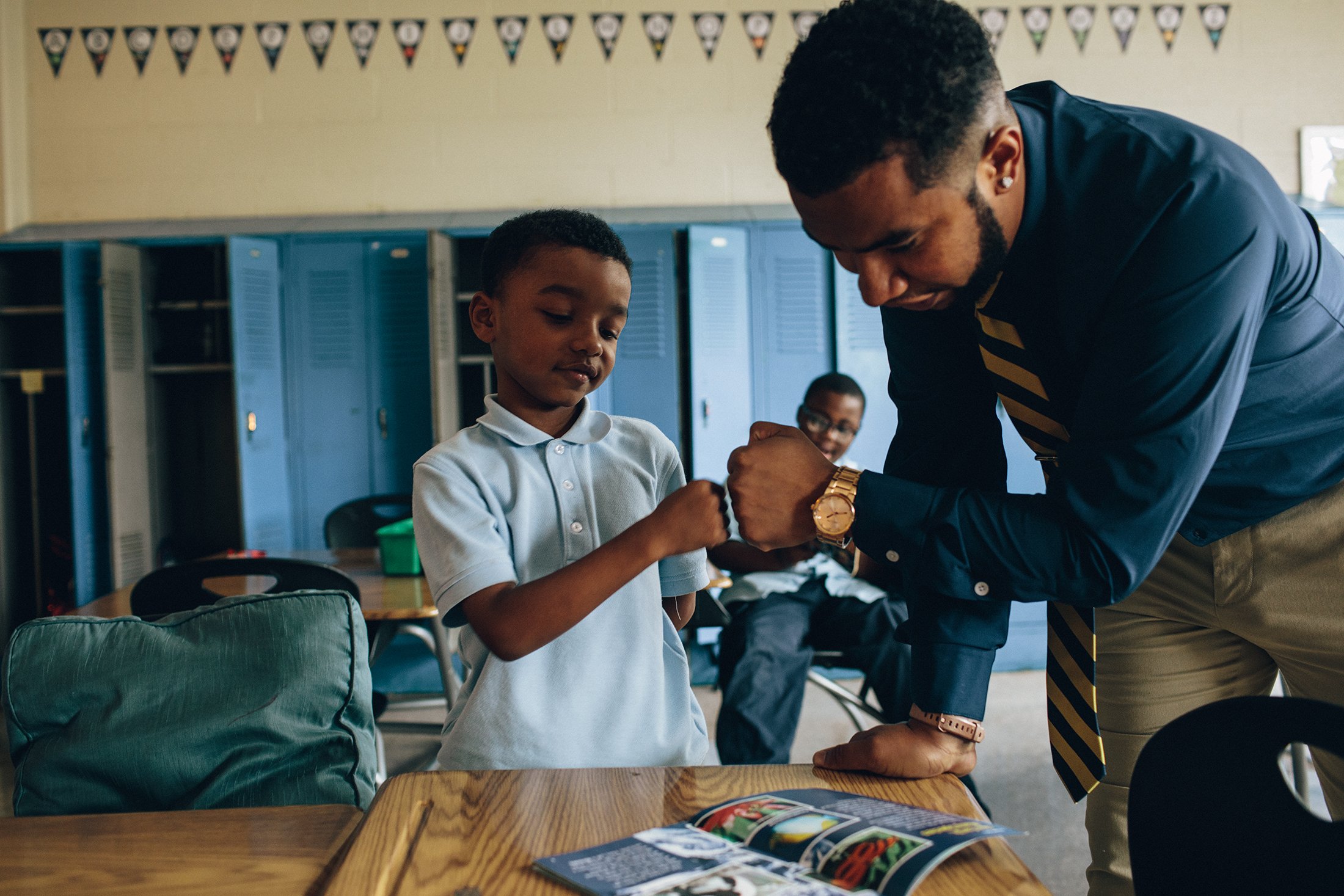
For example, Aiton Elementary was one of D.C. Public Schools’ “priority schools,” where students had a history of low tests scores. Thus, teachers were pressured to raise their tests scores. Moreover, the demanding curriculum was inflexible to the fact that students were typically reading several levels behind.
In 2018, at age 26, in his third year teaching, Diasgranados became the Aiton’s most senior teacher when his coworker, friend, and mentor, Quay Dorsey, quit.
That year, Aiton Elementary averaged a teacher-turnover rate of 44% and the school went through four principals in seven years, according to Sarah Stodder with the Washingtonian. Dorsey, who stayed longer than most colleagues, wanted to focus on teaching over test prep.
Even in the turmoil, Diasgranados still managed to create one of the highest achieving classrooms in Aiton while finishing his Master’s in Education from Johns Hopkins in 2018.
In June 2020, his efforts earned him the National University 2020 Sanford Teacher Award for Washington D.C. The Sanford Programs annually recognizes and rewards 51 of the nation’s top inspiring teachers — one from each U.S. state and Washington, D.C.
“[These are teachers] who engages students in inspirational learning opportunities, supports student resiliency, develops strong connections, instills a sense of curiosity, and promotes a strong student voice,” according to their website.
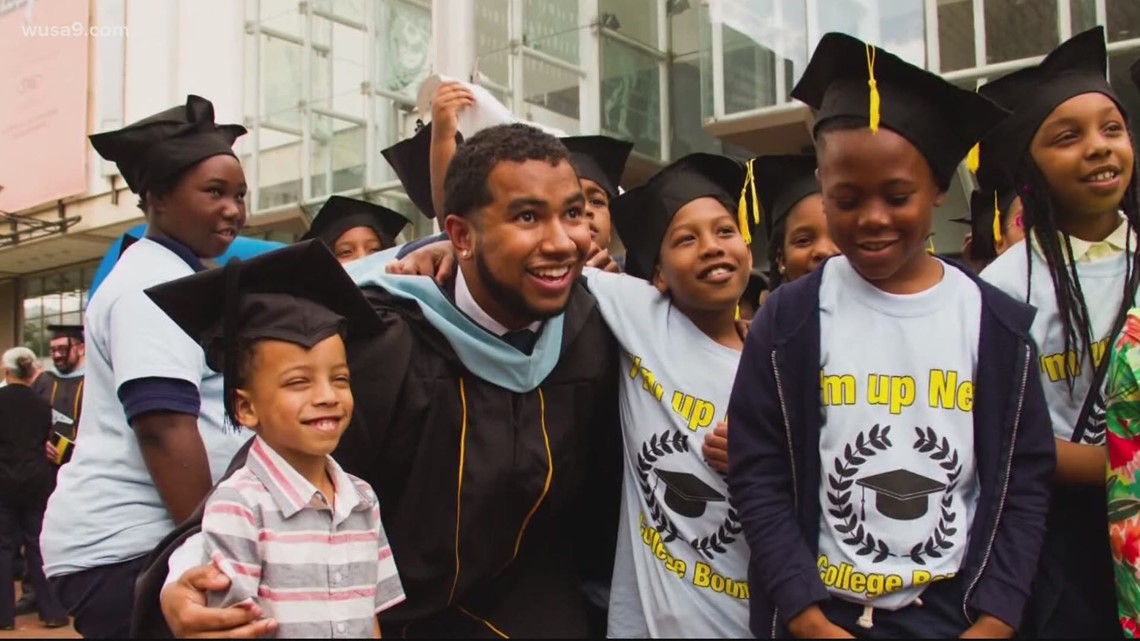
Five months later, D.C. Mayor Muriel Bowser named Diasgranados District of Columbia’s 2021 Teacher of the Year.
“Outstanding educators like Alejandro Diasgranados help students connect what they learn in the classroom to the world around them and inspire them to be life-long learners,” Bowser said.
In 2021, National University recognized Diasgranados as 2020 Teacher of the Year on the Drew Barrymore Show.
He was also selected among four finalists for the 2021 National Teacher of the Year, which is run by the Council for Chief State Schools Officers.
“A truly transformational teacher must effectively collaborate with parents, students, teachers, and community stakeholders and must not only focus on academic success, but school culture as well,” Diasgranados wrote in his finalist application.
“Recently, Alejandro met with U.S. Secretary of Education Dr. Miguel Cardona and Deputy Secretary of Education Cindy Marten to discuss how the Department of Education can help provide equitable and inclusive learning environments for students across the nation,” according to Healthier Generation.
Mario Reyna: Changing Lives Through Physical Education
Growing up in poverty in a Texas city near the Mexico border, Mario Reyna did not have a physical education teacher in his elementary school.
He eventually learned that physical literacy at an early age can transform lives.
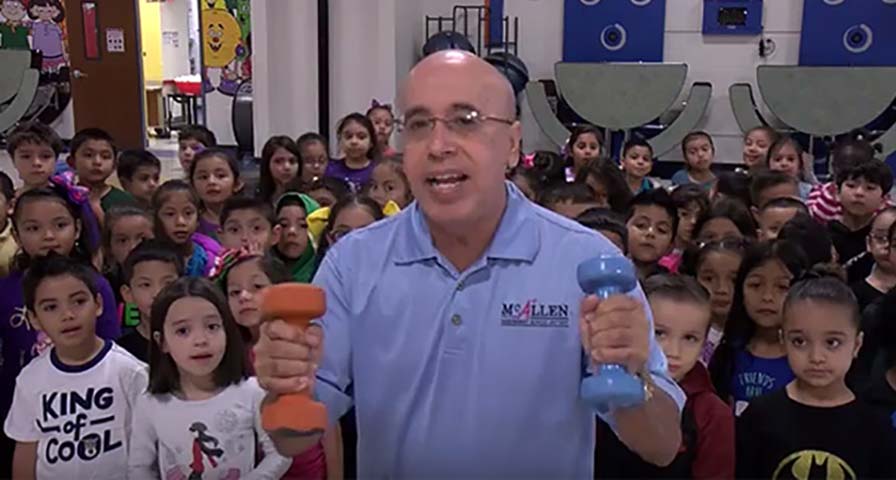
So Reyna dedicated his life to school physical education.
Now, after 40 years as a physical education teacher and health and physical education director with McAllen Independent School District (ISD), Reyna has retired.
“Mario proudly identifies as a Hispanic-American and attributes much of his lifetime dedication to ‘paying it forward’ to his Mexican family values,” according to Healthier Generation.
In 2010, Reyna became the first male Latino President of the Texas Association for Health, Physical Education, Recreation and Dance (TAHPERD), an organization that began in 1923.
He helped McAllen ISD became the nation’s first district to earn 100% Let’s Move recognition with all 32 of its schools joining the movement, according to Salud America!
In 2014, he received national recognition from then First Lady Michelle Obama and former First Lady Hillary Clinton for his work with the Let’s Move campaign.
“Over seven consecutive years, his leadership and passion helped all 30 eligible campuses of McAllen ISD earn national recognition as ‘America’s Healthiest Schools,’” according to Healthier Generation.
Reyna has worked diligently to secure funding from various sources to support the district’s physical education departments.
He urges health and physical educators to inform their legislators about struggles related to limited funding and how that funding is spent.
For example, he reached out to Congressman Vicente Gonzalez to visit schools in his district and talk about the importance of physical education.
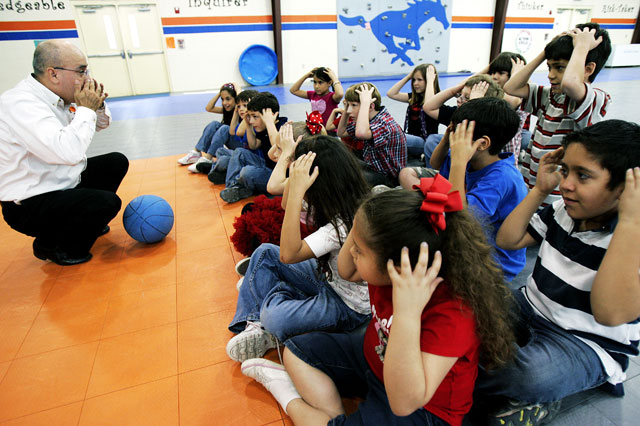
“During our time in the car and after visiting four or five schools we got to talking about funding, for which he expressed support,” Reyna said, according to SHAPE America.
After Reyna gets funding, he steps up his public relations by sharing how the funds really impact kids.
“Once you’ve invested the money, it will be important to show how student learning is being impacted and how the new equipment contributes toward whole-child development,” Reyna said. “If you show them how the funds really impact kids, you make it harder for them to say no to you next time.”
Although he retired from McAllen ISD, he hasn’t stopped working.
He was recently elected as a board member for SHAPE America and Chair of the 50 Million Strong committee.
He continues to advocate for physical education for kids.
“Make stakeholders see that education is not just about academics, it’s also about kid’s well-being and social-emotional development,” Reyna said.
Pia Escudero: Addressing a Silent Epidemic
When Pia Escudero was 9 years old, her father, a professor of medicine at the University of Chile in Santiago, brought the family to Southern California to escape political unrest and provide a future with more opportunities, according to Healthier Generation.
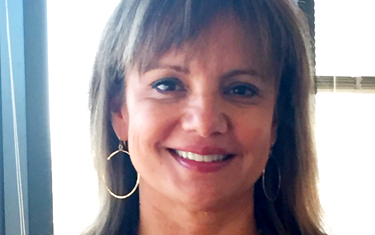
Early on, she recognized the importance of education and all the teachers and counselors who supported her through difficult times.
Her father and these adult helpers inspired her to create an inclusive and healthy future for children.
Now, as director of the Los Angeles Unified School District School (LAUSD) Mental Health, Escudero oversees more than 300 professionals, including psychiatric social workers, psychiatrists, and clinical psychologists.
“My calling is to advocate and be an ally to students, along with building cadres of professionals and communities to do the same,” said Escudero, according to Healthier Generation. “Adults can open doors for students they may have never dreamed of entering.”
One of Escudero’s most valuable skills is navigating systems and finding answers.
For years, she has tried to solve what she calls a “silent epidemic” of childhood trauma.
Not many are aware that, while rates of PTSD average 7-12% for military, trauma screenings in LAUSD have found that over 50% of students report moderate to severe traumatic stress symptoms.
“An epidemic occurs when the rate of disease substantially exceeds what is expected,” Escudero said, according to LA School Report. “So if the common rates are 7 to 12 percent, this is something that’s really masked and been under the radar in our classrooms.”
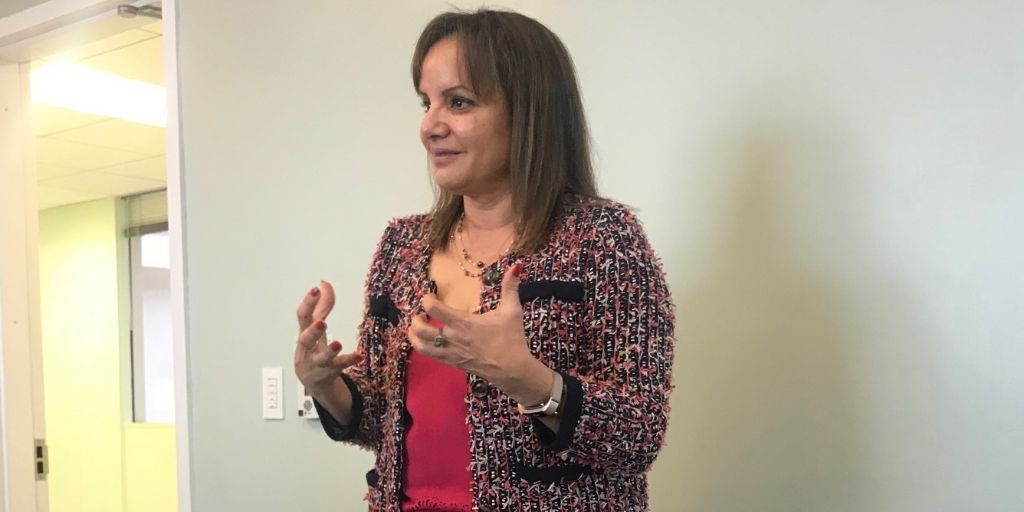
Not only have about 98% of LAUSD students experienced at least one traumatic event, but many have experienced six or more traumatic events.
“Trauma is common in our children’s lives, but multiple traumas are also very common,” Escudero said.
That’s why she works to develop, implement, evaluate, and dissemination trauma-informed and trauma-specific services for children and families to address childhood trauma.
Read about the some of the great work California is doing to address childhood trauma.
“Untreated trauma is so costly to our society,” Escudero said. “These are the kids who drop out of school, end up in then juvenile justice system, early death and with very maladapted behaviors that cost us.”
Childhood trauma has lifelong social and health consequences.
Part of Escudero’s work includes dismantling barriers to services to treat trauma due to institutionalized biases based on zip code, race, gender, or any other established system, according to Healthier Generation.
She also raises awareness about the need for school staff to have skills in attachment and regulation activities.
“These children come with such a load of barriers,” Escudero said. “It’s usually multiple issues facing their lives when they come into the classroom.”
Beyond seeking the best instructional materials and technology, Escudero inspires staff to be protective, welcoming, affirming, and caring to build protective factors for these students.
“One of the reasons I’m so passionate about being in the schools is that people feel that schools are extensions of the family and they come,” Escudero said.
She knows it is important to provide mental health services in school rather than refer children out, because parents are unlikely to follow-up on outside referrals.
“Families in LA have long work hours, plus getting on a bus or traveling somewhere else with the transportation, and then we also lose a day of school,” Escudero said.
Providing mental health services on campus is, for example, one of the three components of the Handle With Care program.
“Our school mental health staff are trained on individual trauma-focused therapy, but then if we have a school-based social worker at the school, they’re doing all the macro work, student campaigns, doing presentations in class, and surveying children in the center,” Escudero said.
“It’s really a public mental health model.”
What Can You Do to Promote Health Equity?
Learn about health equity for Latino kids in your area.
Just download a Health Equity Report Card from Salud America! at UT Health San Antonio.
With the report card, you can find maps and data visualizations on rates of adults with no high school diploma, data on preschool enrollment, and the rate high school graduation as well as dropouts.
You can then email your Health Equity Report Card to school and community leaders, share on social, and build the case to address education issues in at-risk areas!
Explore More:
Overcoming Harmful BiasesBy The Numbers
3
Big Excuses
people use to justify discriminatory behavior
This success story was produced by Salud America! with support from the Robert Wood Johnson Foundation.
The stories are intended for educational and informative purposes. References to specific policymakers, individuals, schools, policies, or companies have been included solely to advance these purposes and do not constitute an endorsement, sponsorship, or recommendation. Stories are based on and told by real community members and are the opinions and views of the individuals whose stories are told. Organization and activities described were not supported by Salud America! or the Robert Wood Johnson Foundation and do not necessarily represent the views of Salud America! or the Robert Wood Johnson Foundation.


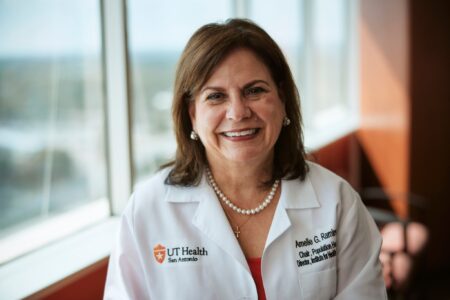
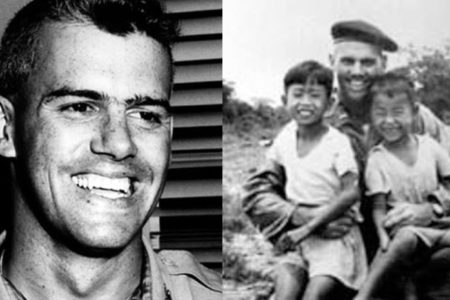
[…] 80,000 in the Vietnam War in 1959-1973, and more than 400,000 in World War II in 1939-1945, reports Salud […]